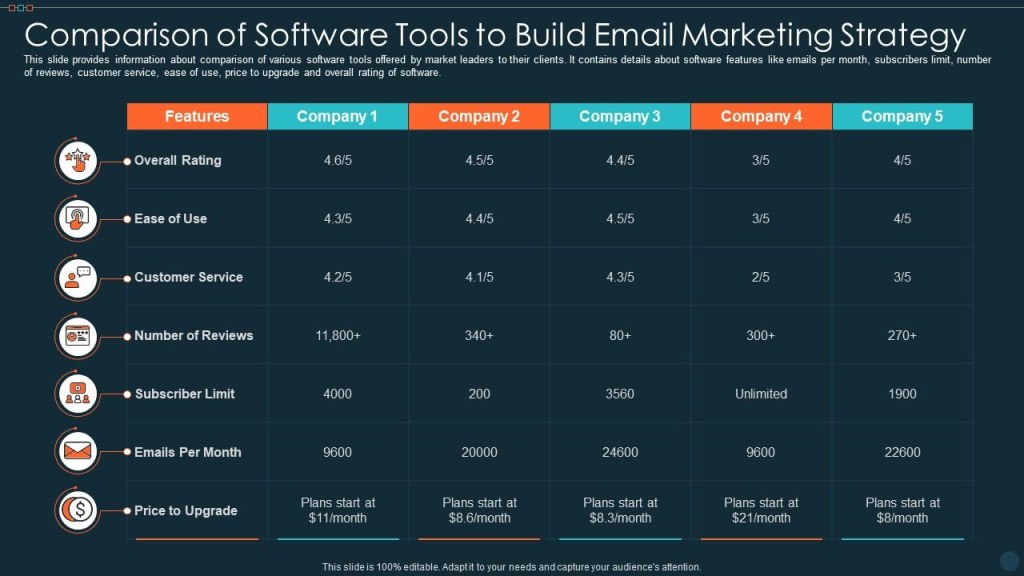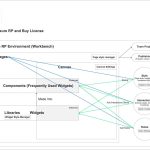Ultimate Software Build Tools Comparison: Unveiling The Power Of Efficient Development Processes
Software Build Tools Comparison: A Comprehensive Guide
Introduction
Dear Readers,
1 Picture Gallery: Ultimate Software Build Tools Comparison: Unveiling The Power Of Efficient Development Processes

Welcome to our comprehensive guide on software build tools comparison. In this article, we will explore different build tools and compare their features, advantages, and disadvantages. Whether you are a seasoned developer or just starting your coding journey, understanding the different build tools available can greatly enhance your development process and productivity. So, let’s dive in and explore the world of software build tools together!
What is a Software Build Tool?

Image Source: slideteam.net
🔍 A software build tool is a program used to manage and automate the process of building software applications. It helps in compiling, testing, and packaging the source code, making it easier to produce a working application. By automating these tasks, build tools save developers valuable time and effort.
🔍 Some popular software build tools include Maven, Gradle, Ant, and Make. Each of these tools has its own unique features and advantages, making them suitable for different types of projects and development environments.
Who Uses Software Build Tools?
🔍 Software build tools are widely used by software developers, engineers, and DevOps teams. They play a crucial role in the software development lifecycle by automating the building and deployment processes. Whether you are working on a small personal project or a large-scale enterprise application, using a build tool can streamline your development workflow and improve collaboration within your team.
When Should You Use a Software Build Tool?
🔍 Software build tools are beneficial in various scenarios. If you are working on a project with multiple dependencies and libraries, a build tool can simplify the process of managing and resolving these dependencies. It also allows for incremental builds, where only the modified parts of the code are recompiled, saving time during development.
🔍 Additionally, if you are developing a project that requires testing, packaging, and deployment, a build tool can automate these tasks, ensuring consistency and reliability. Build tools also enable continuous integration and continuous delivery, making them essential for agile software development practices.
Where Can You Use Software Build Tools?
🔍 Software build tools can be used in various development environments, including desktop, web, and mobile applications. They are compatible with different programming languages such as Java, C++, Python, and more. Whether you are developing for Windows, macOS, or Linux, there are build tools available that cater to your specific needs.
Why Should You Consider Using Software Build Tools?
🔍 There are several compelling reasons to consider using software build tools in your development process:
1️⃣ Automation: Build tools automate repetitive tasks, reducing the chances of human error and saving time.
2️⃣ Dependency Management: Build tools handle the management of project dependencies, making it easier to include and update external libraries.
3️⃣ Consistency: By following predefined build scripts, build tools ensure consistent builds across different environments and machines.
4️⃣ Efficiency: Incremental builds and parallel builds offered by build tools optimize the build process, making it faster and more efficient.
5️⃣ Collaboration: Build tools facilitate collaboration among team members by providing a standardized build process and easy integration with version control systems.
How Do Software Build Tools Work?
🔍 Software build tools work by reading a build configuration file, also known as a build script, which defines the steps required to build the software. The build script contains instructions for compiling source code, running tests, packaging the application, and performing other tasks necessary for building the software.
🔍 Build tools leverage the power of the underlying operating system to execute these instructions and produce the desired outputs. They can also integrate with other tools and frameworks to enhance the build process further.
Advantages and Disadvantages of Software Build Tools
Advantages:
1️⃣ Increased Productivity: Build tools automate repetitive tasks, allowing developers to focus on writing code and delivering software faster.
2️⃣ Efficient Dependency Management: Build tools handle the complexity of managing project dependencies, making it easier to include and update libraries.
3️⃣ Consistency and Reproducibility: Build tools ensure consistent and reproducible builds, reducing the chances of runtime issues caused by different build environments.
Disadvantages:
1️⃣ Learning Curve: Some build tools have a steep learning curve, requiring developers to invest time in understanding their syntax and features.
2️⃣ Complex Configuration: Configuring build tools for specific project requirements can be challenging, especially for complex projects with multiple modules.
3️⃣ Build Time Overhead: Depending on the size and complexity of the project, using a build tool may introduce additional build time overhead.
Frequently Asked Questions (FAQs)
1. Q: Can I use multiple build tools for the same project?
A: Yes, in some cases, it is possible to combine the features of different build tools to meet specific project requirements. However, it is essential to carefully manage dependencies and ensure compatibility between the tools used.
2. Q: Which build tool is the best?
A: The choice of the best build tool depends on the specific requirements of your project. Consider factors such as programming language, build complexity, and team preferences when selecting the most suitable build tool.
3. Q: Are there any build tools specifically designed for mobile app development?
A: Yes, several build tools, such as Gradle and Xcode, are commonly used for mobile app development. These tools provide features tailored to the unique requirements of building and packaging mobile applications.
4. Q: Can build tools be used for non-programming projects?
A: While build tools are primarily designed for software development projects, they can also be adapted for other purposes. For example, some build tools can be used for generating documentation, deploying websites, or managing project assets.
5. Q: Are there any build tools that are platform-specific?
A: Yes, some build tools are designed for specific platforms. For example, MSBuild is a build tool primarily used for building .NET applications on the Windows platform.
Conclusion
In conclusion, software build tools are essential for modern software development. They automate the process of building, testing, and packaging software, saving developers time and effort. By using build tools, developers can improve productivity, manage project dependencies efficiently, ensure consistency, and enable collaboration within their teams.
Now that you have a comprehensive understanding of software build tools and their benefits, it’s time to explore different build tools and choose the one that best suits your project requirements. Embrace automation, streamline your development process, and unleash your full potential as a software developer!
Final Remarks
Dear Readers,
We hope this comprehensive guide on software build tools has provided you with valuable insights and knowledge. Remember, choosing the right build tool can greatly impact your development workflow and productivity. Take the time to evaluate your project requirements, explore different build tools, and experiment with them to find the perfect fit.
Happy coding and building!
This post topic: Software Tutorials



